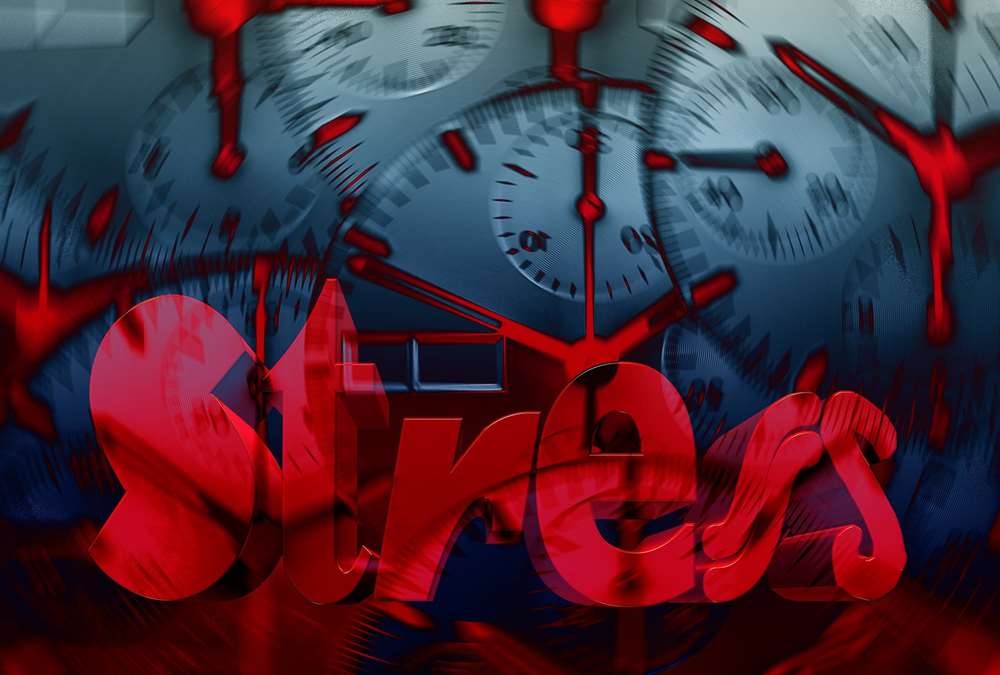- Home
- Business Processes
- Industry Knowledge
- Aerospace Industry
- Automotive Industry
- Banking Domain
- BFSI Industry
- Consumer/ FMCG Industry
- Chemicals Industry
- Engineering & Construction
- Energy Industry
- Education Domain
- Finance Domain
- Hospitality Domain
- Healthcare Industry
- Insurance Domain
- Retail Industry
- Travel and Tourism Domain
- Telecom Industry
- Leadership Skills
- eLearning
- Home
- Leadership Skills
- Project Leadership
- Is Stress Always Bad?
Is Stress Always Bad?
Stress is an essential part of our life. No one can live without stress. Stress can be beneficial as well as harmful. Stress as a positive influence adds excitement and hope while as a negative influence it can result in destructive feelings, anger, and depression. Although the general orientation to stress is to consider unfavorable outcomes, yet one must have observed that stress experiences may also facilitate the development of effective and varied coping behavior, increased personal resources, and lead to a sense of competence in development. Stress at a moderate level is not only inevitable but may be useful for physical and mental well-being.
Beneficial Stress
It may be mentioned here that stress is not necessarily bad in itself; it has a positive value. It offers an opportunity for potential gain. Stress in a positive context induces employees to rise to the occasion and perform at their best.
Beneficial stress is called as "Eustress." It can motivate to attain goals, perform better and complete tasks. Eustress arises from situations that are inspiring, exciting, or enjoyable such as getting a gift, passing with good grades, getting a trophy, etc. An event that causes constant worry to one can be a very useful challenge to another. When we are under stress, our awareness, our senses, and our mind are sharpened. We know many people who work best under stress because they do not permit stress to create anxiety in them.
Harmful Stress
Harmful or negative stress is called "Distress." Generally speaking, people refer to distress when they talk about stress. Distress can lead to physical or psychological overload (breakdown) if it continues for long. Distress can arise in various situations like accidents, financial loss, loss of parents, failure in examinations, etc. It can lead to health problems. Let us take an example.
Both eustress and distress can be acute (one time only) or chronic (repeated over time). A sudden noise of a fire alarm can produce acute distress while living in a noisy industrial locality can lead to chronic distress which can be accompanied by physical and emotional problems. Stress at work and job stress is a chronic disease caused by conditions in the workplace that negatively affect an employee's performance and his health. Work-related stress in the life of organized workers consequently affects the health of the organization.
Performance & Low Stress
Stress arises when we have to work beyond our capacity. It helps us perform better and achieve our goals. If one is not under enough stress, one may find that the performance suffers because one is bored and unmotivated. There exists a relationship between stress and the quality of performance. If the level of stress is low, individuals may find that their performance is low because they are bored, lack concentration and motivation.
Performance & High Stress
However, if one is under too much stress, they may find that their performance is adversely affected. It is excessive stress that leads to maladjusted behavior among them. If the stress is too high, their performance can suffer from all the symptoms of short-term stress reactions. If not managed properly, it can lead to poor performance, bad health, and conditions like depression and suicides. You must have realized this in many situations in your life that stress, after a limit, causes irritability, tiredness, and exhaustion.
Optimum Stress Levels
It is essential to understand the importance of optimum stress levels and individuals must recognize that they are responsible for their own stress; they should learn to monitor their stress levels, and adjust them according to the need of the hour. By managing stress effectively one can significantly improve the quality of one’s own lives. Stress for them will be pleasurable when it is seen as a challenge that calls for their new-found energy and their skill.
It is very much like the stress on a sitar string. Not enough produces a dull, harsh sound. Too much makes a shrill, annoying noise, or causes the string to snap. However, just the right degree can create magnificent tones. The zone of best performance is when there is a moderate level of stress. If the individual is at an optimum level, one will be sufficiently aroused to perform well without being over-stressed and unhappy.
Negative Implications for the Organization
Negative implications of stress for the organization may be identified as under:
- Poor performance resulting in a fall in the quality and quantity of work
- Absenteeism at work
- The negative fallout of business.
- Increase in social tensions
- Resistance to social change
- Withdrawal from normal social networks
- Deterioration in morale
- Hurdles in effective communications
- Irrational judgments about others
- Sense of distrust and alienation.
- Poor decision making and its implementation
- Accidents in workplaces
- Loss of potential human resources
Related Links
You May Also Like
-
How often do you have a plan for how you are going to spend your day but you aren't able to complete the tasks on your plan because of unimportant tasks, interruptions, or your own procrastination? Wouldn't it be great to be able to manage your schedule and your time while avoiding, or at least controlling, these time stealers? Learn the strategies to manage your schedule while still handling interruptions and demands on your time.
-
Time management is the process of planning and exercising conscious control of time spent on specific activities, especially to increase effectiveness, efficiency, and productivity. The best time management techniques improve the ways you work. Time management refers to managing time effectively so that the right time is allocated to the right activity. Learn more about the five steps for effective time management viz. study, identify, analyze, decide, and implement.
-
Reasons behind Wastage of Time
Under-utilization of time may be due to the faulty system or faults of manager/officer/leader or due to lack of planning. There could be many factors driving the procrastination behavior like system issues, personal work habits, and lack of delegation, personality traits, and bad working habits of the leader, failure to tackle interpersonal conflicts, obstacles, and lack of far-sightedness.
-
Tips for Effective Time Management
After studying and analyzing how time is spent, why time is wasted, and where time is wasted you need to decide about the changes required for effective utilization of time. For this purpose, a large number of remedial measures can be taken by you. The first and foremost determinant of a planned and purposeful utilization of time is to develop consciousness of the value of time at all levels of the organization. Planning, goal setting, and defining priorities are concerns to addressed immediately.
-
The best career choices are ones that match your values. Each person has several values that are important to him. These values are highly personal and knowing them provides a clearer sense of what's most important to you in your life and career. Career values are the beliefs you consider important from a work standpoint. Values help you understand what you want from a job? Explore a few examples of work values that can influence career path and job satisfaction.
-
Authentic leadership is an approach to leadership that emphasizes building the leader's legitimacy through honest relationships with followers which value their input and are built on an ethical foundation. The authentic leader acts upon his or her values and beliefs, and inspires others to do the same, is committed to know and develop oneself. Are you committed to developing yourself; know your motivations and the purpose of your leadership? Read this article to know more about authentic leadership style and discovering your authentic self.
-
Concept & Definition of Stress
Stress is a popular expression used by people in day to day life. Pressures of day to day living sometimes necessitate coping or dealing with them and stretch the body beyond its natural capacity. They are called stressors. Stress is a natural, ongoing dynamic, and interactive process that takes place as people adjust to their environment.
-
A manager or an employee in an organization who is experiencing a high level of stress may develop high blood pressure, ulcers, irritability, difficulty in making routine decisions, loss of appetite, accident proneness, and the like. These can be subsumed under three general categories, physiological, psychological, and behavioral symptoms. Stress can give rise to a number of changes.
-
Evidence of the medically damaging symptoms of work stress necessitates applying the treatment of stress management. Stress management is increasingly drawing the attention to the management experts not only as a remedial measure but also as a way to resource management. If the workplace can be made a little more lovable the increase in the achievement of the organization may be much time more. If group stress can be removed by introducing group discussions and recreational facilities a long-lasting team spirit may get developed.
-
Crisis leadership is a very important part of leading in today's world. The skills a leader needs in order to guide people during a crisis are different from the skills needed to help a group grow. Are you a good crisis leader? What is your leadership style in case of a business crisis situation? A business crisis can test the strongest of leaders, read this article to explore how to ensure you’re ready to take action and weather the storm when one strikes you.
Explore Our Free Training Articles or
Sign Up to Start With Our eLearning Courses

About Us
Learning
© 2023 TechnoFunc, All Rights Reserved










